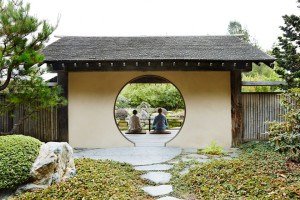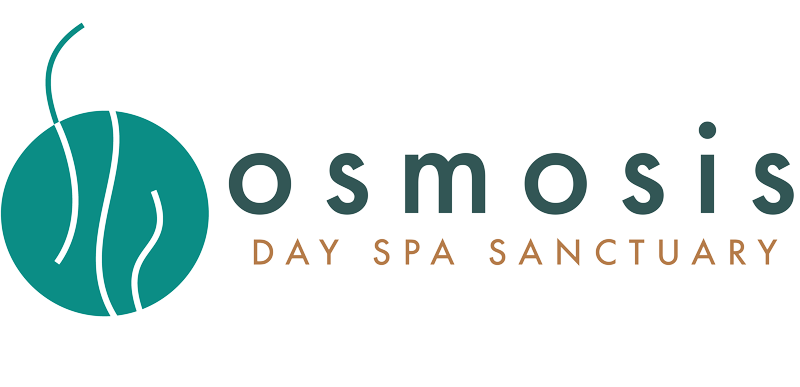Stressed out? 5 spas that will help soothe body and soul
by Sheryl Jean
 The baby is crying, the dog just knocked over your coffee and you have a report due in 30 minutes.
The baby is crying, the dog just knocked over your coffee and you have a report due in 30 minutes.
Sound like an average day? That’s life. It’s complicated and filled with stress. Because stress is so pervasive, it may be one of the most underrated causes of health problems, including ulcers, heart disease and diabetes. Up to 85 percent of all health-related problems are linked to stress, according to research by B.L. Seaward, executive director of The Paramount Wellness Institute in Boulder, Colo.
In today’s digital world, people are under more stress than ever. Call it information overload.
More than a third of American adults experienced increased stress last year and more reported extreme stress, according to a survey by the American Psychological Association.
Yet, stress is natural. It’s the body’s way of reacting to physical and emotional demands. The key is how you manage stress — and that’s led to an explosion of spas and treatments.
“Positive forms of stress, such as birth, a new job and marriage, can help the growth of neural pathways and rewire the brain to adapt as needed,” said David R. Vago, an associate psychologist at Brigham and Women’s Hospital’s Functional Neuroimaging Laboratory. “But if stress stays too long and you don’t recover soon enough, it can have long-term physical effects.”
Research shows that relaxation methods — from meditation and hydrotherapy to massage and other spa-like treatments — can help reduce stress, increase a sense of well-being and improve health.
Dr. Herbert Benson, founder of the Benson-Henry Institute for Mind Body Medicine at Massachusetts General Hospital in Boston, coined the term “relaxation response” years ago as an approach to relieve stress and lower blood pressure and heart rate.
The idea is to “break the chain of everyday thinking, which is often done through repetition of words, sound, prayers or movement,” Benson said. Similar techniques are found in scores of spa offerings — from yoga to tai chi, he said.
A day spa may be the easiest and least expensive relaxation method.
Day spas
Posh Chuan Spa on the fourth floor the Langham Hotel in downtown Chicago bases its treatments on the holistic approach of traditional Chinese medicine.
“This isn’t gimmicky,” said Director of Spa William Wesley Myers. This isn’t something new. This is ancient tradition.”
Spa guests fill out a questionnaire to determine which of the five Wu Xing elements (wood, fire, earth, metal and water) needs the most balancing. The spa employs an Oriental medicine master, and a 30-minute consultation is required for anyone wanting a traditional Chinese medicine treatment.
Before an appointment, visitors can relax in a Himalayan salt sauna or herbal steam room, take a cool aromatherapy rain shower or swim in the 67-foot-long pool. Afterward, they can sip tea and experience sensory therapy while lounging in the Dream Room.
Osmosis Day Spa Sanctuary in the hamlet of Freestone, Calif., is best known for its Cedar Enzyme Bath ($99), a Japanese heat therapy in which the whole body is submerged in a fermenting mixture of soft ground cedar and rice bran that boosts metabolic activity. But the real secret of this boutique spa about 60 miles northwest of San Francisco is its several Zen-inspired gardens.
Find nirvana strolling through the Japanese meditation garden — designed with help from a Zen priest — or laze in a cushioned hammock while listening to soothing sounds.
Owner Michael Stusser, who studied Zen meditation and landscape gardening in Japan, sees nature as a key part of healing. “It helps arrest people’s standard MO,” he said. “Our basic intention from day one was to reduce tension.”
Meditation and yoga
Rolling Meadows Retreat in tiny Brooks, Maine, adds silence to meditation and yoga, which “requires people to look inward” and away from the distractions of modern life, said Surya Chandra Das, co-owner with his wife, Patricia Brown. Its four- and seven-day retreats on a restored 1840s New England farm are limited to 11 people.
It’s all about being completely unplugged at this country haven about 200 miles north of Boston. Rolling Meadows doesn’t offer spa services, and cell phones, novels or magazines aren’t allowed, but visitors can swim in a pond or meander across its 100 acres.
Danika Jefferson Leeks, a busy single mom of an 11-year-old boy and small business owner in the Dallas area, can attest to the healing power of yoga.
“I’m juggling a lot of balls,” said Leeks, who attended an ashram in the Bahamas last year and plans to go on a six-day yoga retreat in Belize this month. “I do it to reduce stress and step away from my life for 60 to 90 minutes.”
From desert to water
If the desert is your thing, head to Miraval Resort and Spa, a luxury retreat on 400 acres outside Tucson, Ariz., to learn how to better manage your stress.
Its “mindful stress mastery” class — complementary to resort and spa guests — highlights the roots of stress and how to better regulate reaction to stress. Its “living a true life in balance” class teaches people how to balance a busy life by examining daily choices.
Miraval also offers a long list of treatments, such as floating meditation and Himalayan sound therapy, walking trails and a labyrinth. This year, the spa renovated its guest rooms, lobby and lounge.
Remember “Calgon, take me away!” The phrase was used in 1970s advertisements touting home bubble baths as a way to melt away stress. Hydrotherapy — water, steam or ice — has been used since ancient times to improve health.
You might recognize the brand Kohler from your bathroom faucet, but Kohler Co. also runs several spas that offer therapeutic water treatment.
Its flagship Kohler Waters Spa in Kohler, Wis., about two hours north of Chicago, links to a five-star hotel. If you don’t want to drive that far, Kohler runs a day spa in Burr Ridge, about 20 miles south of downtown Chicago.
“We’re all about the therapeutic benefits of water — the use of water for well-being and relieving discomfort and stress,” said Garrett Mersberger, director of Kohler Water Spas and development at Kohler Co. It also offers some therapies specifically for men.
Treatments, such as massage, with Kohler’s Vichy shower help wash away stress, Mersberger said. A sleek, horizontal shower bar with six tiles hangs over a table and sprays in a random pattern, which helps people sink into a deep state of relaxation, he said.
Visitors also can lounge in the relaxation pool with an 8-foot waterfall or a plunge into a cool pool. Waterfalls are even built into the walls so the sound of falling water is ever-present.
“Water is essential to life,” Mersberger said. “It absolutely can help stress.”
If you go
Chuan Spa, Chicago, www.chuanspa.com/en/Chicago: Day spa prices start at $175, depending on the season and treatment. Langham Hotel rooms start at $395 per night for two people.
Kohler Waters Spa, Kohler, Wis., www.americanclubresort.com/spa: Day spa prices start at $70, and hydrotherapy starts at $170. Packages (spa and hotel) start at $199 and go up to $429 per person/per night.
Miraval Resort and Spa, Tucson, Ariz., www.miravalresorts.com: Spa and lodging packages start at $499 per person per night, including meals. Day spa services start at $199 with some complimentary services and lunch.
Osmosis Day Spa Sanctuary, Freestone, Calif., www.osmosis.com: Prices at this day spa start at $99.
Rolling Meadows Retreat, Brooks, Maine, http://rollingmeadowsretreat.com: Prices for retreats with lodging start at $650 for four days.
Sheryl Jean is a freelancer.
Stressed out
More than one-third of American adults (34 percent) reported increased levels of stress last year, according to a survey by the American Psychological Association. And 78 percent reported at least one stress symptom, such as headaches or trouble sleeping.
Top reasons for stress
1. Money: 67 percent
2. Work: 65 percent
3. Family responsibilities: 54 percent
4. Personal health issues: 51 percent
5. Family health problems: 50 percent
6. The economy: 50 percent
SOURCE: American Psychological Association 2015 Stress in America survey


